STEP FOUR
THE THREE SETS
OF PARALLELS
LOCATING THE POINT
AND THE EYE-LEVEL
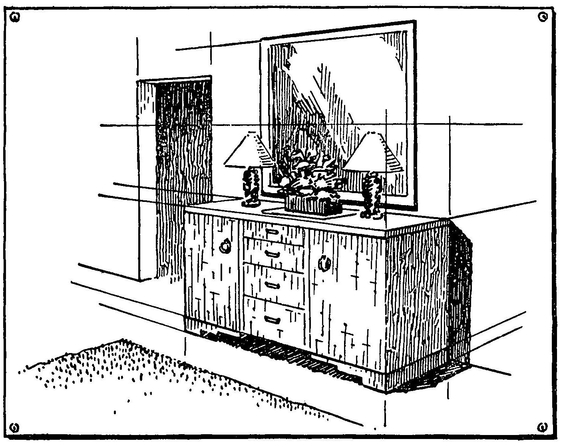
THE THREE SETS OF PARALLELS
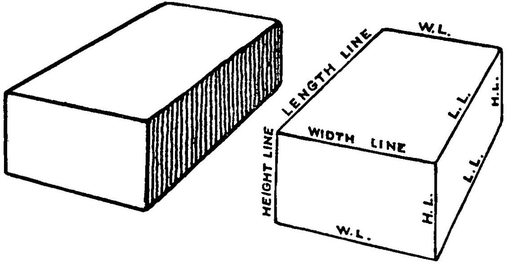
Here we have an ordinary brick.
It has six sides, but only three sides can be shown in the drawing.
The lines of the drawing indicate where two of these sides join.
If all sides of the brick were shown there would be twelve lines.
The four long lines which indicate the length of the brick are parallel lines.
The four lines of the width are parallel.
The four lines of height (or thickness) are parallel.
Now let us turn the brick so that we are looking straight along the length lines. The sketch on the next page shows it in this position.
We now have the end view of the brick.
LOCATING THE POINT AND THE EYE-LEVEL
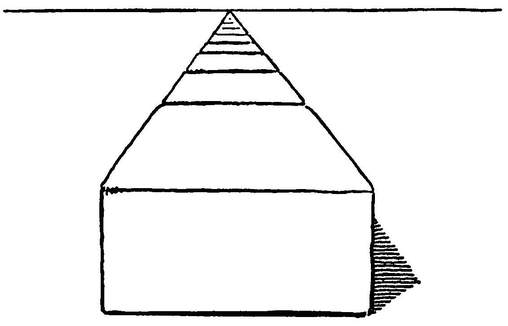
Remember how as a child you placed bricks end to end to make a railroad track? Try this.
You see that the facts discovered in regard to the railroad track on the plain now hold true for bricks; the line of the eye-level, vanishing point, and all.
Now let us remove all the bricks but one.
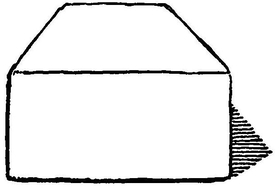
Here it stands. The vanishing point is gone from the drawing, so is the line of the eye-level.
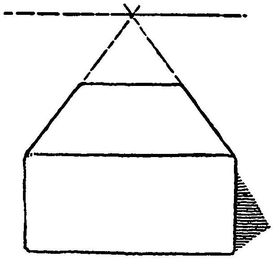
We can easily find the vanishing point and the eye-level by extending the lines that represent two parallel edges of the brick.
The vanishing point is where they meet.
A horizontal line drawn through this point gives us our eye-level.
Thus we can find the vanishing point and the eye-level by extending any two lines that represent converging parallel lines in a perspective drawing.
FINDING VANISHING POINTS AND THE LINE OF VISION
It is an interesting experiment to take cuts of photographs from magazines and then locate the vanishing points by extending the lines that are parallel. Where they cross is the vanishing point.
A straight line through the two vanishing points thus located shows on the photograph just how high the camera’s eye was above the ground. This is the eye-level.
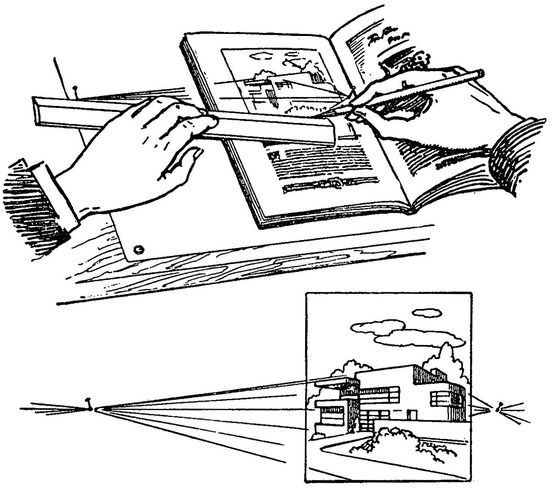
Any photograph of a building or a room can be used for this experiment. An easy method is to paste the photograph or clipping in the middle of a large piece of paper and then draw the lines right over the photo and paper.
REMEMBER
A brick has six sides. Three of these can be shown in a perspective drawing. We draw a straight line to show where two sides join. Opposite edges are parallel lines.
A row of bricks placed end to end becomes a railroad track. All bricks but one can be removed, still we can find the eye-level and the vanishing point.